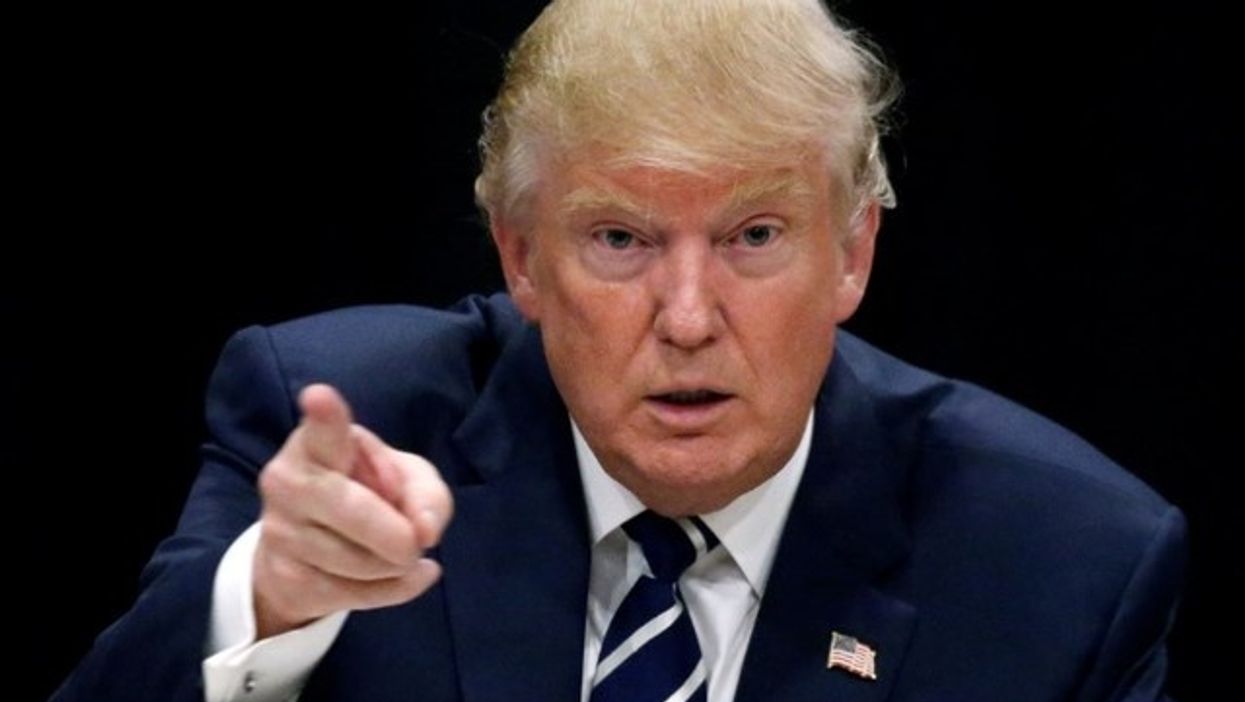
Donald Trump's campaign announced on Tuesday that it filed a libel lawsuit against the Washington Post, accusing the newspaper publishing "false and defamatory statements" intended to "maliciously interfere with and damage" Trump's reelection.
The lawsuit challenges two separate pieces from 2019 by Washington Post opinion writers Greg Sargent and Paul Waldman.
Sargent's piece quotes from special counsel Robert Mueller's report about how the Trump campaign welcomed Russia's interference in the 2016 election — a factual statement.
Waldman's piece points to Trump's interview with ABC News, in which Trump said he wouldn't necessarily turn offers of help in the 2020 election from foreign countries such as Russia or China.
Waldman went on to write, "who knows what sort of aid Russia and North Korea will give to the Trump campaign, now that he has invited them to offer their assistance?"
But the Trump campaign's lawsuit claims that, "There has never been any statement by anyone associated with the Campaign or the administration 'inviting' Russia or North Korea to assist the Campaign in 2019 or beyond."
This is the second lawsuit the Trump campaign filed against a news organization that reported facts Trump doesn't like.
Last week, Trump sued the New York Times for defamation over an opinion piece by Max Frankel that relied on previous reports about a possible quid pro quo between the Trump campaign and Russia in 2016.
The lawsuit says that the article, "does not acknowledge that, in fact, there had been extensive reporting, including in The Times, that the meetings and contacts that the Defamatory Article refers to did not result in any quid pro quo or deal between the Campaign and Russia."
However, Frankel's article came out weeks before the full Mueller report was released to the public. The report found that the Trump campaign did welcome Russian interference, but that there was not sufficient evidence to charge the campaign with a conspiracy.
Theodore J. Boutrous Jr., a First Amendment lawyer with Gibson, Dunn & Crutcher LLP, wrote in a Washington Post op-ed that the lawsuits are "dangerous" to freedom of the press — calling the first lawsuit against the New York Times "paper thin" and full of "embarrassingly shoddy legal work."
Boutrous points out the Supreme Court precedent set in New York Times Company v. Sullivan "requires a public figure to prove, by clear and convincing evidence, that the defendant made an allegedly defamatory statement of fact knowing it was false or with reckless disregard for the truth."
In the Trump campaign's lawsuit against the New York Times, Boutros wrote that, "the Trump campaign can't possibly meet this standard regarding the Frankel piece, which is pure opinion, based on fully disclosed public facts."
Ultimately, the lawsuits are yet another escalation of Trump's attacks on media outlets that report facts he doesn't want them to report, calling them "fake news."
Trump has long feuded with both the New York Times and Washington Post — which have broken numerous stories about scandals within the Trump administration, including the possible collusion between Trump's campaign and Russia in 2016.
Trump has tweeted dozens of attacks against the New York Times, saying the outlet is "failing," despite the fact that the outlet is seeing growing digital subscriptions and positive revenue.
He often attacks the Washington Post and its reporters as "fake news" — and has criticized the paper for being owned by billionaire Amazon founder Jeff Bezos, whom Trump dislikes.
"People are disgusted and embarrassed by the Fake News Media, as headed by the @nytimes, @washingtonpost, @comcast & MSDNC, @ABC, @CBSNews and more," Trump tweeted on Sunday. "They no longer believe what they see and read, and for good reason. Fake News is, indeed, THE ENEMY OF THE PEOPLE!"
Published with permission of The American Independent Foundation.


